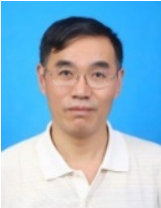Modeling complex materials with chemical bond hierarchy:
A machine-learning interatomic potential approach
Zhang Wenqing
Department of Physics, Southern University of Science and technology
EXTENDED ABSTRACT: Modeling complex materials by machine learning approach has attracted much attention in recent years. Developing robust and reliable machine-learning-based interatomic potentials (ML-IPs) has become increasingly important in studying physical property such as lattice thermal transport in condensed matters and materials with complex structures and chemical bonding pattern as well. In this work, ML-IPs based on dual adaptive sampling or even multiple adaptive sampling method is developed, with the automatically generated training dataset covering a wide spectrum of temperatures and even different thermodynamic conditions. The approach could avoid the trial-and-error issues in a random approach in constructing training set, leading to high-quality ML-IPs. The Green-Kubo simulations with the above ML-IPs predicted the lattice thermal conductivities and their temperature dependence for CoSb3 with up to 3rd-order phonon scattering, Mg3Sb2 with up to 4th-order phonon scattering, BAs and diamond with very high lattice thermal conductivities, and TE alloys with different composition ratios, and all results show good agreement with experiments. General understanding for the temperature dependence of lattice thermal conductivity of different materials with extremely strong phonon nonlinearity is discussed. Discussion on modeling complex materials with chemical bond hierarchy will also be briefly discussed in this talk.

Prof. Wenqing ZHANG got his BSc/MSc degrees from Xiamen University and Ph.D. degree from Shanghai Institute of Optics and Fine Mechanics, Chinese Academy of Sciences. After working in FHI in German, and Harvard University, Princeton University, and UCSB in America, he joined the faculty of Institute of Ceramics, CAS at the special CAS “one-hundred-talent plan” in 2003, and moved to SUSTech as a full professor in 2017. Prof. Zhang’s research interests mainly cover computational materials science, electrical/electron transport and thermal/
phonon transport, advanced thermoelectric materials design, and interface-related phenomena in functional materials. Dr. Zhang was elected as an APS Fellow due to his pioneering work in thermoelectric material design and computational materials science in 2014.